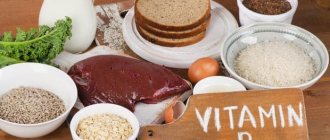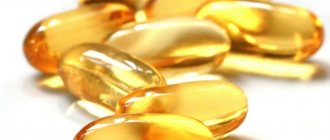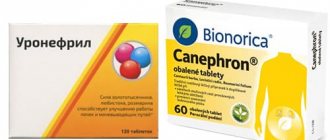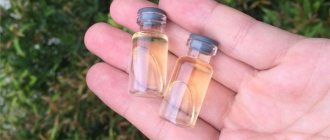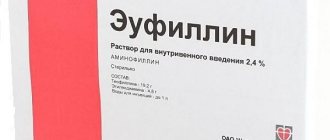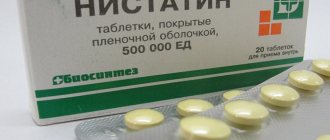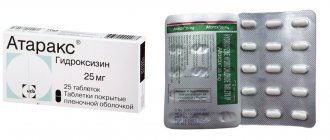Vitamin H (biotin) belongs to the class of microvitamins that the human body needs in microscopic quantities: the required daily norms for both children and adult patients, including those belonging to high-need groups, are calculated in micrograms. And yet, ignoring this need means destroying your own health - after all, this vitamin is extremely important for processes that support life. It serves as an active catalyst, playing a key role in the activation of metabolic mechanisms. Scientific research proves that this substance is part of a small group that can affect the state of the nervous system and provide a regenerating and restorative effect on the body as a whole.
Despite the fact that part of vitamin H is synthesized by the intestinal microflora, in most cases this amount is not enough to fully meet the body’s daily needs, albeit microscopic. For normal functioning, additional intake of biotin is necessary from the outside, that is, from food. This substance is water-soluble, and therefore practically does not accumulate in organs and tissues (partially in kidney and liver cells). This means that the diet should be fortified daily, so information about where vitamin H is found, under what influence it is stored in maximum quantity and how best to consume it, is extremely important for maintaining health and observing the principles of proper, balanced nutrition.
What is biotin?
Biotin or vitamin B7 (or H) is a water-soluble vitamin, part of the B group - essential nutrients necessary for the proper functioning of the human metabolic, nervous, digestive and cardiovascular systems.
Vitamin B7 cannot be synthesized by the human body, but it is produced by intestinal bacteria and is present in numerous foods ( ).
There is an opinion among people that biotin supplements allow us to maintain youth for a longer time, since it has properties that improve the condition of our curls, nails and skin. For this reason, biotin is sometimes given a second name, vitamin H, which comes from the German words “Haar” and “Haut,” meaning “hair and skin.” To meet this demand, cosmetics manufacturers add it to their hair and skin care products. However, what is certain is that it is poorly absorbed into the skin and hair and actually needs to be taken internally to reap maximum health benefits. In general, to date there are no serious studies that would confirm the benefits of using biotin supplements to strengthen hair and nails. But benefits have been proven in the treatment of certain diseases ().
Properties and functions of biotin
Biotin is vitamin H, also known as B7. The most popular drug based on it is Biotin Forte. Its composition interests many.
Biotin is a white substance in the form of a crystal, which tends to be destroyed by heat treatment and when exposed to an alkaline environment.
Takes an active part in the formation of amino acids and other biologically active substances. The body synthesizes it on its own, but experts believe that it is not enough to cover all the necessary needs for it. There are many reviews on the Internet and they are universally positive, so there is a fair desire to try Biotin Forte. However, the question remains whether it is really necessary to additionally replenish the level of vitamin B7 in the body. We will look at reviews of Biotin Forte at the end of the article.
Vitamin H in the composition of the drug "Biotin Forte" performs the following functions:
- Promotes the production of glucokinase, which regulates blood glucose levels.
- Interacts with insulin, which helps regulate sugar levels.
- Takes part in the process of carbohydrate metabolism.
- Helps protein digestion and also promotes fat burning.
- Sulfur, which is one of the components of biotin, has a beneficial effect on the condition of hair, skin and nails, as it takes part in the synthesis of collagen, which is the basis of tissue cells.
- Positively affects intestinal microflora.
- Regulates the activity of the central nervous system, which is powered by glucose, boosted by biotin.
— Letofarm LLC (Russia).
Recommended Daily Allowance (RDA) for Biotin
The Food and Nutrition Board (FNB) has determined that there is currently insufficient evidence to support an RDA for biotin.
Primarily due to limited data on its bioavailability in humans ( ).
For this reason, FNB has only established an Adequate Intake (AI) level for vitamin B7. And these data are shown in the table below: Table 1. Adequate Intake Levels (AI) for Biotin, mcg
| Stages of life | Age | Men | Women |
| Children | 0-6 months | 5 | 5 |
| Children | 7-12 months | 6 | 6 |
| Children | 1-3 years | 8 | 8 |
| Children | 4-8 years | 12 | 12 |
| Children | 9-13 years | 20 | 20 |
| Teenagers | 14-18 years old | 25 | 25 |
| Adults | 19 years of age or older | 30 | 30 |
| Pregnancy | All ages | – | 30 |
| Breast-feeding | All ages | – | 35 |
Data source
What products contain
To prevent biotin deficiency, you need to eat right. Some affordable and inexpensive products contain 2–2.5 daily norms of this substance per 100 g. The main sources of vitamin H are organ meats, especially pork and beef liver (200–250 mcg). Slightly less (30–60 mcg) biotin contains:
- peanuts, walnuts;
- boiled eggs and raw yolks;
- soybeans, chickpeas, lentils, beans, green peas;
- rice bran;
- rye (whole grain).
From 4 to 20–25 mcg of vitamin H is found in the following foods:
- sardines, herring, flounder;
- almonds, hazelnuts;
- whole grains, especially oats, wheat germ;
- cauliflower, porcini mushrooms, champignons;
- olive, coconut oils;
- chicken, pork;
- bananas, oranges;
- milk, cheeses, cottage cheese.
Important: heat treatment greatly reduces the amount of nutrients in any product. Leave food that can be eaten raw (many vegetables, herbs, nuts) in this state. To get maximum biotin, boil or steam offal. Soak the cereals for 4–6 hours in cool water, kefir or milk. Canned food often lacks vitamin B7. It is destroyed under the influence of sulfur compounds (additives of group E).
Causes of biotin deficiency and its symptoms
Biotin deficiency is rare, and severe deficiency has never been reported in healthy individuals eating a normal mixed diet.
Groups of people at risk of biotin deficiency:
- Individuals with biotinidase protein deficiency. Biotinidase deficiency is a rare genetic autosomal recessive disorder that interferes with the release of biotin from foods. This ultimately leads to its deficiency in the body, despite its normal consumption. Without treatment, biotinidase deficiency causes neurological and skin symptoms, and severe deficiency of this protein can lead to coma or death ( ). Because treatment with biotin supplements, starting at birth (or after the onset of symptoms) and continuing throughout the rest of a person's life, can prevent these symptoms, all newborns in the United States and many other countries around the world are screened for the disorder.
- Persons with chronic alcohol exposure. Chronic exposure to alcohol inhibits biotin absorption. Its plasma concentration is 15% lower in people with chronic alcoholism.
- Pregnant and lactating women. At least 30% of pregnant and lactating women develop asymptomatic biotin deficiency despite a normal dietary intake, even when it exceeds the AI.
Symptoms of biotin deficiency usually appear gradually and include ():
- Thinning hair;
- Brittle nails;
- Gradual loss of all body hair;
- scaly, red rash;
- Conjunctivitis;
- Aciduria (abnormal amount of acid in urine);
- Convulsions;
- Depression;
- Lethargy and developmental delay in infants.
Properties of vitamin B7
Biotin is one of the main enzymes responsible for the balance of proteins and fats. It is necessary for the production of a substance that regulates carbohydrate metabolism. Vitamin B7 helps convert nutrients (valuable elements from food) into energy and is involved in the synthesis of glucose. Other important properties for the body:
- Indirectly participates in the production of collagen - the protein that makes up ligaments, cartilage, nails, and hair. Maintains skin elasticity and hydration.
- Helps transport oxygen to cells and tissues.
- Reduces inflammation, strengthens the immune system.
- Improves memory, thinking, speech and condition of people with multiple sclerosis.
- Reduces the level of “bad” cholesterol.
- Controls the amount of sugar in the blood, stimulates the secretion of insulin by the pancreas. In people with type 2 diabetes, it reduces glucose levels.
- Improves the condition in people with neuropathy. This is a pathology that is associated with damage to nerve fibers.
Food Sources of Biotin (Vitamin B7/H)
Cooked eggs are an excellent source of biotin
Food should be your first choice when looking for sources of biotin. Vitamin B7 in foods is usually bound to protein and there are no problems with its absorption.
Because food manipulation, such as cooking food, can render biotin ineffective, raw or less processed versions of these foods contain a more active form.
It is always better to get your nutrients from natural sources. If you cannot get enough biotin, your doctor may suggest you take a dietary supplement.
The table below lists some sources of vitamin H and their mcg content:
Table 2. Some Popular Food Sources of Biotin, mcg
| Product | Contents per 100 g. (unless otherwise specified) |
| Brewer's yeast | 20 – 200 |
| Beef liver, cooked | 31,75 – 41,15 |
| Chicken egg, cooked | 13-25 (1 piece of large size – 56.7 grams) |
| Salmon, cooked | 4,7 – 5,88 |
| Pork chop, cooked | 2,35 – 4,7 |
| Cheese, cheddar | 0,47 – 2,35 |
| Avocado | 2-6 (in 1 medium size piece) |
| Raspberries | 0,16 – 1,6 |
| Sunflower seeds | 7.4 (average) |
Data sources: ( , ).
Directions for use and doses
The dosage of biotin is determined by the doctor based on the patient’s condition and the problem that needs to be solved. The average daily intake for adults ranges from 20-30 mcg. In some diseases it can reach 50 mcg. Minor patients usually take 5-12 mcg of biotin.
As a prophylaxis, one or two tablets of the drug containing 5 mg of the active substance are prescribed. People with problems with nails and hair (dryness, brittleness) are recommended to take 2.5 mg of biotin daily. For malabsorption syndrome, 10 mg of vitamin per day is indicated. For B7 deficiency caused by hereditary factors, 5-10 mg of the drug per day is usually prescribed.
During the treatment of many diseases, the standard duration of a course of taking biotin is one calendar month. It can be prolonged depending on the severity of the patient’s condition and the results achieved. This need is determined by the attending physician.
Biotin tablets and capsules are taken with or immediately before meals. The drug must be taken with plenty of water. Sometimes the medicine is prescribed by injection for a faster effect, if the situation requires it.
Benefits of biotin for human health
#1 Essential for Energy Metabolism
Biotin is a coenzyme for carboxylases, enzymes that help the body process fats, proteins, and carbohydrates (FPPs) to produce energy ( ).
These enzymes are used by the body for the following biochemical processes:
- Gluconeogenesis, a metabolic pathway that produces glucose from non-carbohydrate sources, including amino acids ( ).
- Energy production in cells ( ).
- Use of branched chain amino acids (such as leucine, isoleucine and valine) to produce neurotransmitters and energy ( ).
- Synthesis and breakdown of fatty acids for energy ( ).
- Insulin release ( ).
Inadequate levels of biotin in the body can slow metabolism, leading to fatigue, digestive problems and weight gain ( ).
#2 May Help Balance Blood Sugar
Biotin helps reduce blood sugar by increasing insulin production, enhancing glucose uptake in muscle cells, and stimulating glucokinase, an enzyme in the liver that promotes glycogen synthesis (, ,).
Daily biotin supplementation reduced fasting blood sugar concentrations by an average of approximately 45% in patients with type 2 diabetes ( ).
In addition, high doses have been shown to improve symptoms of diabetic neuropathy, a condition of nerve damage commonly seen in patients with diabetes ( ).
#3 Biotin may help reduce the risk of heart disease
- Biotin is essential for normal fat metabolism, which is critical for maintaining heart and blood vessel health (,).
- When taken with chromium, biotin may help reduce risk factors for heart disease by increasing high-density lipoprotein (HDL) levels and lowering low-density lipoprotein (LDL) levels, especially in patients with diabetes (,).
- Pharmacological doses of biotin (15,000 mcg/day) are also effective in reducing blood triglyceride concentrations in patients with elevated triglyceride levels ( ).
#4 Helps improve cognitive functions of the brain
Biotin is necessary for the formation of myelin sheaths, a substance that covers nerve fibers and promotes nerve impulse conduction. Thus, its deficiency may delay myelination ( ).
Multiple sclerosis is a disorder characterized by damage and loss of myelin. Given its role in the synthesis of open-chain carboxylic acids and energy production (both of which are essential for myelin repair and axonal survival), it has been suggested that vitamin H may be effective in limiting or reversing the disorders associated with multiple sclerosis ().
In fact, some studies have found that high-dose biotin therapy can reverse disease progression and improve symptoms in patients with progressive multiple sclerosis (,).
However, although these results are promising, research is currently limited and larger clinical trials are needed to fully evaluate the potential effects of high-dose vitamin B7 supplementation ( ).
Biotin deficiency can also lead to a number of other neurological symptoms, including seizures, lack of muscle coordination, visual disturbances, hallucinations, depression and lethargy. Most of these conditions can be resolved with biotin supplementation (,,).
#5 Biotin is important for the correct functioning of the immune system
- Biotin is involved in the development of white blood cells, and its deficiency is associated with impaired immune function and an increased risk of contracting an infection (,).
- It increases the production of Th1 cytokines such as IL-1β and IFN-γ, which are essential for eliciting an immune response to fight bacterial and viral infections ().
- Inadequate levels of vitamin B7 are associated with decreased antibody synthesis and T cell breakdown in animals and humans (,).
- A decrease in the rate of cell proliferation during biotin deficiency may explain some of these adverse effects on immune function ().
- Deficiency of biotinidase, an enzyme that helps recycle biotin, is associated with chronic vaginal candidiasis and is treatable with biotin supplementation. Since 1 in every 123 people has a biotinidase deficiency, women with chronic vaginal candidiasis may respond positively to treatment with vitamin B7 ( ).
#6 Biotin Suppresses Inflammation and May Relieve Allergic Disorders
Research in a mouse model and human white blood cells indicates that biotin deficiency may increase the production of proinflammatory cytokines and worsen inflammatory conditions ( , , ).
In biotin-deficient mice with nickel allergy, vitamin H supplementation reduced the production of proinflammatory cytokines and improved allergy symptoms, indicating a potential therapeutic effect of biotin against inflammatory and allergic diseases in humans ( ).
This may result from decreased activity of NF-κB, which is activated in vitamin B7 deficiency (,).
#7 Biotin helps strengthen skin, hair and nails
- Biotin deficiency is associated with a number of skin conditions, including seborrheic dermatitis and eczema (,).
- Skin cells are especially dependent on oil production because they require additional protection from damage and water loss from constant outdoor exposure ( ).
- Inadequate levels of vitamin B7 can also contribute to hair loss, which is reversible when added to the diet. Although some scientific work suggests that biotin helps hair growth in girls with thinning hair, there is minimal evidence that it promotes hair growth in people without any health problems (, , ,). I believe that it is much more correct to use biotin with other vitamins for rapid hair growth, since this will achieve the most positive synergistic effect.
- It can prevent brittleness of nails, making them harder and thicker (,...) either alone or in combination with other effective nail vitamins.
#8 May protect against cancer
Biotin binds covalently to histones, DNA-binding proteins that help shed and package DNA into chromatin ( ). The addition of biotin to histones plays a significant role in cell proliferation, gene freezing, DNA repair, and stability (,).
Low levels of biotin can lead to inadequate biotinylation of histones, which can lead to genomic instability and abnormal gene expression and thus increase the risk of cancer ( , , , ).
However, 1 study found that higher levels of biotin (up to 600 mcg) increased genomic instability and damage, indicating that the DNA stabilizing effects may be dose dependent ( ).
Interestingly, the causal relationship between histone biotinylation and cancer risk in humans remains a subject of investigation ( ).
#9 Biotin may prevent birth defects
Marginal biotin deficiency is common during pregnancy due to increased requirements from the growing fetus ( ).
In animals, even subclinical levels of biotin deficiency can lead to cleft palate and limb abnormalities ( ).
It has been suggested that low biotin levels during pregnancy may increase the risk of congenital anomalies in humans by altering fat metabolism and increasing genomic instability, which can lead to the development of chromosomal abnormalities and fetal malformations (,).
However, definitive evidence supporting the link between biotin deficiency in humans and the development of birth defects is currently lacking, and more research is therefore needed ().
Biotin: indications and limitations for use, possible side effects
You should think about taking biotin capsules if local and general symptoms of vitamin B7 deficiency appear, these are:
- disturbance of the activity of the nervous system;
- decreased hemoglobin concentration;
- general deterioration in well-being, lack of strength and energy not only for physical training, but also for everyday activities.
But the lack of biotin manifests itself most clearly in the form of deterioration in the condition of hair and skin.
So, the indications for taking the drug Biotin are:
- increased hair loss;
- increased fat content of strands;
- dandruff (dry seborrhea);
- brittle hair, severely split ends;
- inexpressive shade of curls;
- excessive dry skin;
- brittle nails;
- the appearance of early signs of aging.
It is important
Biotin is also recommended to be taken for preventive purposes with frequent hair coloring and lightening, and perming.
Also, taking capsules with vitamin H is necessary in the presence of various diseases and other factors that affect the state of the intestinal microflora. This includes long-term use of antibiotics and sulfonamides, various genetic pathologies, and surgical interventions affecting the integrity of the mucous membrane of the digestive tract.
It is important
As a rule, the dosage of biotin in capsules exceeds the daily requirement. This is completely safe and necessary to replenish the deficiency and normal course of various physiological processes.
There are practically no contraindications to taking Biotin. You should refrain from using the drug if you are hypersensitive to the components of the capsules. You should also consult your doctor first if you are pregnant or breastfeeding. In addition, in such cases, it is possible to replace the systemic oral agent with external use of biotin in the form of masks or shampoos.
It is important
If there are other pathological causes of biotin deficiency, it is necessary to treat the underlying disease, otherwise taking capsules will be useless.
Biotin almost never causes side effects. In extremely rare cases, an allergic reaction (skin rash and itching) may occur. Sometimes fluctuations in blood sugar levels occur, and chronic dermatoses worsen. Then the use of the medicine should be stopped immediately and consult a doctor.
After a course of treatment, the effect of biotin on the human body develops gradually. First, metabolic processes are normalized and the functioning of the nervous system improves. Then skin health is restored and nails are strengthened. Hair growth noticeably accelerates, curls acquire a beautiful natural shade and shine. The problem of increased fat content and hair loss is eliminated, and dandruff gradually disappears.
It is important
Taking biotin capsules in accordance with the dosage indicated in the instructions is one of the reliable methods for preventing oily and dry seborrhea.
Genetic aspects related to biotin
As you know, any product you eat, any drug or dietary supplement that you take as prescribed by a doctor can in one way or another affect the activity of your genes, while maintaining the structure of your DNA. That is, for example, “good” genes can increase their activity, and “bad” ones can slow it down until they turn off completely. The opposite is also true.
A separate branch of medicine, epigenetics, is currently studying these processes.
BTD Gene – Enzyme that recycles biotin.
The BTD gene codes for biotinidase, an enzyme that processes biotin. Biotinidase transports free biotin through the bloodstream and attaches biotin to other proteins ( ). Single nucleotide polymorphisms (SNPs) in the BTD genome include the following:
- RS13073139
- RS13078881
- RS2455826 – This gene variant is associated with an increased risk of psoriasis ( ).
- RS34885143
- RS35034250
- RS7651039 – the “C” allele is associated with a higher risk of coronary heart disease ( ).
SLC5A6 Gene – Transporter that transports biotin into cells.
The SLC5A6 gene encodes a sodium-dependent multivitamin transporter that helps transport biotin into cells ( ).
- RS1395
HLCS Gene is an enzyme that attaches biotin to other proteins.
This gene encodes holocarboxylase synthetase (HLCS), an enzyme that attaches biotin molecules to histones and carboxylase enzymes. Mutations of this gene can reduce the binding of biotin to molecules and suppress carboxylase activity, leading to impaired metabolism of biotin. They can also influence the production of genes that are important for normal development (,).
Biotin binds covalently to histones using the enzyme HLCS and is involved in gene silencing, DNA repair, chromatin structure, and transposon repositioning ( ).
Surely you will be interested in:
- Vitamin complexes for facial skin
- Vitamins against hair loss
- Nicotinic acid for hair growth
Excess vitamin H in the body
Biotin overdose is a very rare phenomenon that practically never occurs in medicine. Since the substance dissolves in water and is quickly eliminated from the body without causing a toxic effect, hypervitaminosis does not develop even at high dosages. In extremely rare cases, uncontrolled use of synthetic vitamin H analogues may result in frequent urination and unusual sweating, which disappears immediately after the excess substance is removed.
Daily requirement
Many experts claim that vitamin B7 can be produced in sufficient quantities in the human body independently, while additional administration of the nutrient with food and supplements is only necessary in the case of microflora disturbances or intestinal diseases.
Instructions for use
The daily requirement of biotin is:
- for infants from birth to 3 years – 10 micrograms;
- for children from 3 to 7 years old – 25 micrograms;
- for children from 7 to 11 years old – 50 micrograms;
- for girls, women – 100 micrograms;
- for boys, men – 150 micrograms;
- during pregnancy, breastfeeding – 150 – 200 micrograms.
Let's consider cases in which the need for vitamin B7 increases by 20 - 50%:
- excessive physical activity, professional sports (swimming, football, basketball, wrestling, alpine skiing, gymnastics, figure skating, hockey, cycling, mountaineering, fencing, rowing, running);
- living in a cold climate, when the air temperature drops 35 degrees below zero;
- increased carbohydrate content in the daily menu;
- constant neuropsychic stress;
- alcohol abuse;
- dangerous burns;
- for diabetes;
- the presence of gastrointestinal diseases, which are accompanied by profuse diarrhea;
- work with chemicals (carbon disulfide, arsenic, mercury);
- long-term treatment with antibiotics.
How to take the nutrient
Coenzyme R, as a biological additive, is usually taken orally before meals with 100 milliliters of water.
Remember, the activity of biotin is increased by magnesium, so for better absorption of vitamin B7, experts recommend taking this microelement at the same time.
What is the name of the drug containing compound H?
Berocca plus or Alvitil.
Table. Biotin content per 100 grams of product
| Product | Biotin content (mcg) | Daily consumption rate, % |
| Chicken liver | 170 | 340 |
| Chicken egg yolk | 56 | 112 |
| Beef and pork liver | 40 | 80 |
| Chicken egg, oatmeal (any), peas | 15-20 | 30-40 |
| Rice, barley and wheat porridge, chicken, cod | 10-12 | 20-25 |
| Meat (broiler chickens), cottage cheese of any fat content, salmon, corn porridge, soft cheese (such as Camembert and Brie) | 5,1-8,4 | 10-17% |
The use of biotin in sports
Athletes often take vitamin and mineral complexes with biotin. This compound plays an important role in metabolic processes involving amino acids and the construction of protein molecules.
Without biotin, many biochemical reactions cannot occur, during which an energy resource is produced to supply muscle fibers. Quite often, a low concentration of this vitamin is the reason that an athlete cannot gain muscle mass at a normal pace.
Vitamin B7 deficiency is sometimes due to the fact that many athletes prefer to eat raw eggs. Egg white contains the glycoprotein avidin, and when vitamin B7 meets it, it necessarily enters into a biochemical reaction. As a result, a compound is formed that is difficult to digest, and biotin is not included in the synthesis of amino acids.
Interaction of biotin with other drugs
The most well-known substance with which the medicine should not be taken is Avadin. Both compounds are found in eggs, vitamin B7 in the yolk, Avadin in the white. When mixed, they react with each other, bind, and the resulting compound is not absorbed by humans. To avoid the influence of Avadin, you can use only the yolk or heat treatment (Avadin is destroyed at high temperatures).
The combination with folic acid has a beneficial effect on the action of both vitamins. The complexes contain both substances. Fatty acids - omega-3, omega-6, are better absorbed with a sufficient level of biotin in the body. But if fats are exposed to water or air, the absorption of vitamin H becomes more difficult. Taking balanced vitamin complexes and proper cooking helps to avoid this.
Vitamin preparations with biotin are compatible with zinc, magnesium, and calcium. They are part of the same drugs. The absorption of iron and iodine is enhanced, and an excess of microelements is possible. The correct selection of the complex on the advice of a doctor copes with the problem.
Alcohol increases the need for biotin.
Biotin is a versatile substance, the need for which is met without additional effort. Deficiency or excess is associated with gross pathologies and extreme disregard for healthy eating recommendations, unhealthy diets, and bad habits.
Main signs of biotin deficiency
Biotin deficiency is a rare condition; a healthy person can easily avoid vitamin deficiency. A deficiency can develop due to gross non-compliance with the rules of a healthy diet, malnutrition, severe pathologies that interfere with the absorption of nutrients. If the need has increased (pregnancy, burns, alcoholism), but the supply remains the same, there is also a risk of deficiency. Symptoms are varied:
- Hair loss;
- Rash (red, scaly, mainly on the face);
- Decreased appetite;
- Muscle pain;
- Sleep disorders;
- Depression;
- In patients with diabetes mellitus – increased glycemic levels.
If such symptoms appear, you need to undergo examination.
Interaction with laboratory research.
Very high levels of biotin may interfere with diagnostic tests that use biotin-streptavidin technology and are commonly used to measure hormone levels (thyroid hormones) and other analytes such as 25-hydroxyvitamin D, progressing to false normal or abnormal results. Several recent reports have described false signs of Graves' disease and severe hyperthyroidism in patients taking 10-300 mg biotin per day, including 6 children receiving 2-15 mg/kg body weight per day of biotin for the treatment of metabolic diseases. Even a single 10 mg dose of vitamin B7 interfered with thyroid function tests for an additional 24 hours after supplementation. A small study in 6 healthy adults taking 10 mg/day of vitamin B7 supplementation for 1 week found interference in several biotinylated assays, including falsely decreased levels of thyroid-stimulating hormone (which may lead to misdiagnosis of thyrotoxicosis) and N-terminal pro- brain natriuretic peptide therapy (which may result in failure to detect congestive heart failure). There was a fatal outcome in a patient who took larger doses of biotin than skewed the troponin test (to diagnose a heart attack). It showed a falsely low result due to exposure to biotins.
Can you lose weight from biotin?
Running and other exercise can also help you lose weight
300 micrograms of biotin per day is the norm for the average person who wants to say goodbye to excess weight.
Indeed, by participating in the metabolism of both carbohydrates and proteins, as well as fats, biotin helps to lose weight with the right diet, lifestyle, and most importantly, consumption strictly regulated by a doctor.
Biotin is sold in capsules as a dietary supplement. It is also found in various food products we are familiar with.
Separately, there are products with specially increased levels of biotin. For an ordinary person, 30-100 micrograms per day is enough.
This amount is completely covered by regular food and biotin synthesis in the body.
Therefore, to increase its amount, nutritional supplements and a special diet are needed.
Biotin - has a high overdose rate. For side effects to appear, you need to exceed the daily norm by at least 100 times. On the other side. Biotin is not a magic weight loss remedy.
It only works with normal diet and physical activity. For example, a person who consumes biotin and walks 3-4 km a day will get a stable effect and lose weight.
Biotin for hair: instructions for use
Biotin is taken orally. Obtained by taking dietary supplements or food. Most of the substance is observed in egg yolks and soybeans. By the way, yolks are also effective for hair when used externally - in homemade masks.
Mix the component with any cosmetic oil. Add honey if desired. Rub the mixture into your scalp and distribute the remainder over the entire length of your strands. Keep the mask under a warm compress (cap + towel) for 30 minutes. The course of masks is 1-2 months. when carrying out procedures 1-2 times a week.
Preparations with biotin should be taken according to the instructions. The dosage in imported supplements is indicated above. However, manufacturers assure that it is completely safe for health. The rate has been increased in order to effectively treat hair from loss, as well as nails from brittleness and splitting. All dietary supplements are taken on a full stomach. Otherwise, the drug will not be beneficial, but will cause harm to the body.
Capsules for oral administration can also be used externally. To do this, the tablets are crushed and combined with oils. The mixture is rubbed into the roots of the hair and kept for half an hour under a cosmetic cap.
To experience a significant effect, it is recommended to combine biotin with zinc, B9 and tocopherol.
